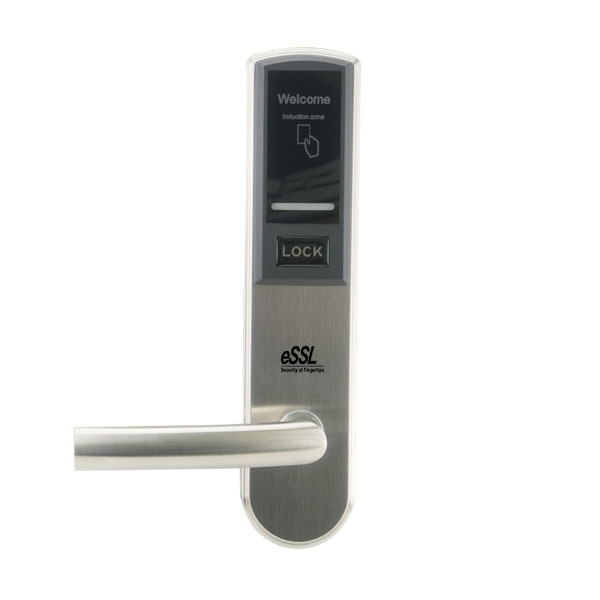What Makes HOTEL LOCK Systems Indispensable?
A HOTEL LOCK is specifically engineered to limit unauthorized room access while ensuring user-friendliness for guests and ease of control for hotel staff. These systems have evolved from simple mechanical locks to sophisticated, tech-powered access control mechanisms, including electronic key cards and mobile keys.
In fact, a recent study by Statista shows that over 85% of modern hotels have now implemented electronic or digital locks. This shift not only bolsters security but also modernizes operations, helping hospitality providers meet growing guest expectations.
Types of HOTEL LOCK Systems
1. Electronic Key Card Locks
Electronic key card locks are the most commonly used HOTEL LOCK systems. These locks function by reading encoded magnetic or RFID cards programmed to allow access to a specific room for a set duration.
Advantages:
- Easy to reprogram or deactivate if lost
- Trackable entry/exit logs
- Cost-effective and scalable
Use Case: Ideal for hotels looking to streamline room management while enhancing security with minimal training for staff.
2. Mobile Key Locks
A rapidly growing segment in the HOTEL LOCK market is the mobile key system. Guests receive a digital key via the hotel app, enabling them to unlock their room using a smartphone.
Advantages:
- Eliminates the need for physical keys or cards
- Allows for remote activation
- Offers a contactless experience—crucial in post-pandemic travel
Use Case: Perfect for tech-savvy travelers and hotels aiming to offer cutting-edge guest convenience.
3. Biometric Locks (Emerging Trend)
Some high-end hotels are starting to integrate biometric HOTEL LOCK systems that use fingerprint or facial recognition.
Advantages:
- Ultimate in personalized access
- Extremely difficult to replicate
Use Case: High-security zones, luxury suites, or VIP guest areas.
Core Features That Set the HOTEL LOCK Apart
Encryption and Authentication
Modern HOTEL LOCK systems are embedded with encryption protocols that safeguard against cloning or digital tampering. This ensures that only authenticated users can access specific areas.
Integration with PMS (Property Management System)
These locks can be synchronized with a hotel’s Property Management System for real-time monitoring, auditing, and control of access permissions.
Energy-Saving Functionality
When guests leave their room, the HOTEL LOCK system can automatically disable lighting, air conditioning, and other utilities to conserve energy.
Privacy Indicators
Guests can activate ‘Do Not Disturb’ features directly via the lock panel, making their stay more personalized and less intrusive.
Benefits of Using HOTEL LOCK Systems
1. Enhanced Guest Security
A HOTEL LOCK provides robust protection against unauthorized access, reducing the risk of theft or unwanted intrusions. Lost keys? No problem—electronic cards and mobile keys can be instantly disabled.
2. Operational Efficiency
Hotel staff can reprogram locks without physically visiting the room. This saves time and increases the efficiency of housekeeping and maintenance teams.
3. Customizable Access Levels
From cleaning staff to management, different levels of access can be granted to ensure that only the right people enter restricted areas.
4. Improved Guest Experience
With fast, convenient access to rooms and personalized controls, guests enjoy a smoother, more luxurious experience.
Common Use Cases for HOTEL LOCK Systems
- Budget Hotels: Cost-effective electronic key card locks offer excellent security without complex installation.
- Luxury Resorts: Mobile and biometric locks provide premium services to tech-savvy travelers.
- Boutique Hotels: Aesthetic lock systems that blend with interior designs, while offering modern functionality.
- Business Hotels: Integration with mobile apps enables contactless check-in/check-out for busy professionals.
Real-World Applications: How HOTEL LOCK Improves Operations
Case Study: The Urban Escape Hotel
After switching to mobile key locks, The Urban Escape Hotel reported a 60% reduction in front-desk traffic during check-ins and a 40% drop in guest complaints related to room access.
Testimonial: A Guest’s Perspective
“I loved not having to fumble with keys. I checked in via my phone and entered the room seamlessly. It felt secure and high-tech,” says travel blogger Neha Arora.
Choosing the Right HOTEL LOCK for Your Property
- Guest Demographics: Are your guests tech-savvy?
- Budget Constraints: Electronic key cards are cheaper, while mobile and biometric locks cost more upfront.
- Integration Needs: Ensure compatibility with your PMS or energy management systems.
- Security Requirements: Evaluate your area’s crime rate or your need for multi-layered access control.
Maintenance and Troubleshooting
Proper maintenance ensures long-term efficiency:
- Replace batteries proactively
- Clean card slots and readers regularly
- Run software updates on integrated systems
- Train staff to handle common issues like lockouts or software glitches
The Future of HOTEL LOCK Technology
As IoT and AI continue to evolve, expect more intelligent lock systems that:
- Adapt based on guest behavior
- Use voice or facial recognition
- Alert hotel staff in real time during security breaches
Conclusion:
HOTEL LOCK systems are not just optional anymore—they’re essential. They enhance safety, improve guest satisfaction, and streamline hotel operations. Whether you’re managing a boutique inn or a global hotel chain, investing in a smart HOTEL LOCK system is a forward-thinking decision.
